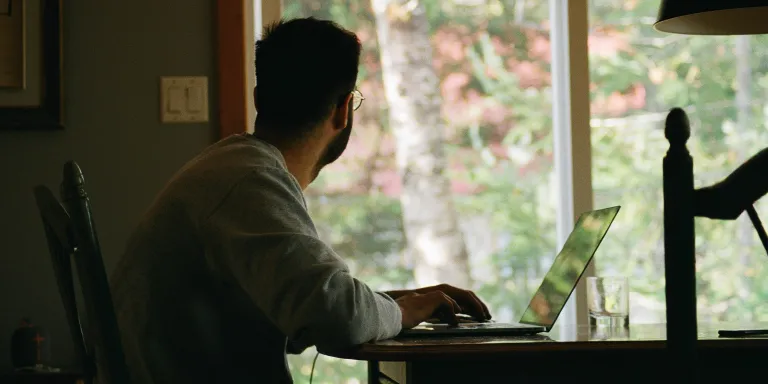
People can react to stress at work in lots of ways. Some of us tend to bottle things up and become withdrawn. Another frequent response is to become defensive or angry or not want to do anything. Others might overcompensate and try to gain some control back over the situation by doing lots more than they usually would.
Whatever the case, stress can have a really negative affect on relationships. Whether they’re avoiding talking to you, becoming distant or frenetically busy, if your partner is under stress, they may neglect to put your relationship first or take your feelings into account.
You might worry, especially if you aren’t being told anything to the contrary, that's it’s you who is the problem and that you’ve done something wrong to prompt this change in behaviour.
Breaking the cycle
This cycle of assumptions can tend to get worse rather than better unless something is done to interrupt it.
Of course, if you’re witnessing your partner behave differently or shut you out, it can be hard to know how to approach things. You might worry that any attempt at an intervention might just make the situation worse.
The simplest solution is just to ask. Of course, if you feel like your partner has been neglecting you or treating you differently, there can be a temptation to start from a position of blame: ‘You’ve not been paying any attention to me’, ‘You never seem to have time for us anymore’, ‘we haven’t had sex in ages’.
And while this is understandable, it’s only likely to make the other person feel defensive. It can be better to put things simply, and in a way that suggests you want to help: ‘I’m worried that you’re stressed. Is there anything I can do?’
Talking properly
Another way to do things is to plan the conversation in advance. Sometimes it can be useful to set a time and a place so you both know you’re going to take a little time to talk things over and really focus on what’s happening. It can be good if this is somewhere outside of your usual routine – while going for a walk or at a café, for instance.
Try to avoid springing the conversation on them late at night or just before you have to go and do something else. You’ll need time and space to have a chance to say how you’re both feeling.
It’s a good idea, when having sensitive conversations to use ‘I’ phrases so, instead of saying ‘you don’t seem to care’, you could say ‘When you don’t talk to me, I start to feel neglected.’ This gives you a chance to express how you’re doing without it sounding like you’re putting everything on them.
One thing that people are often worried about when it comes to work stress is money. It can feel like they don’t have a choice but to be in a stressful job because they need the money. If this applies to you and your partner, it can be useful to address this directly, asking: ‘Is this about the money? If so, can we think about this together?’
Making arrangements
Of course, one of the biggest causes of work-related stress is simply having too much work. In this situation, it can be useful to plan together what time you can both ringfence so, even if you aren’t able to have as much quality time as you would like, as a couple or family, you can still ensure you get some.
Or it can mean accepting that they’re going to be busier for the time being (the onset of stress can often coincide with a new job or promotion), but that this isn’t going to be a permanent thing.
It can also be a good idea to set boundaries in terms of how much time they spend answering emails outside of office hours or how often they have to work late. If they have a demanding job, then avoiding these things entirely might not be possible, but setting upper limits can mean the difference between having the chance to catch up a few times a week or slowly drifting apart over a matter of months.
Again, try to have this conversation in the spirit of working together rather than making demands which adds further pressure on your partner.
How we can help
If you’re looking for support with your relationships, we can help. We offer a range of ways to speak with a trained relationship expert including ongoing counselling, 30 minute web and phone chats, and one session therapy.
Find out which service is right for you
How you can help
Have you found this advice helpful? Make a donation to help us reach more people and continue supporting the nation’s relationships:
Can't afford to donate? We understand. Instead, we ask that you leave us a 5 star review on Trustpilot.